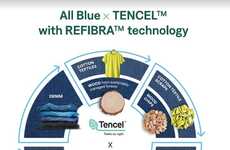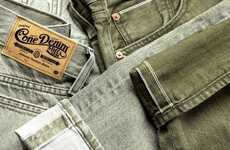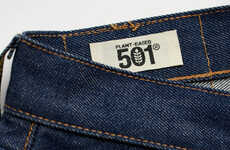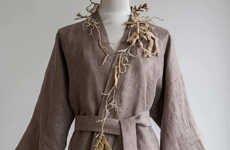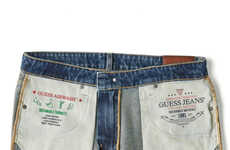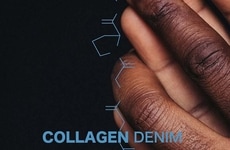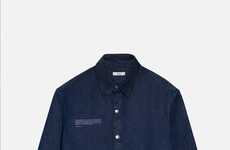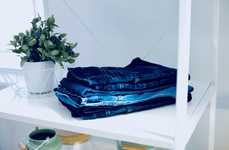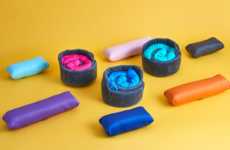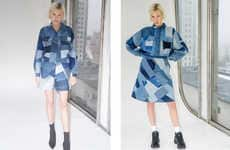
Madewell's Eco Collection Uses Less Water & Food Industry By-Products
Laura McQuarrie — August 30, 2018 — Eco
References: madewell & thecurrentdaily
For the fall season, Madewell is introducing what it calls its most eco-friendly jeans yet as part of its Eco Collection.
The new sustainable denim styles that have been unveiled are made with reduced water and other resources, as well as a product called Kitotex, which makes the most of by-products of the food industry, such as discarded shrimp and lobster shells. This unique product may be used to dye textiles, as the exoskeleton on a crustacean contains a fiber that is beneficial for binding dyes to fabric—as a result, this helps to eliminate the need to use chemicals in its place. In all, Madewell’s Eco Collection is said to use 65% fewer chemicals and 75% less water.
Some of the sustainable styles that Madewell is introducing for the autumn season include jean jackets, overalls and denim pants.
The new sustainable denim styles that have been unveiled are made with reduced water and other resources, as well as a product called Kitotex, which makes the most of by-products of the food industry, such as discarded shrimp and lobster shells. This unique product may be used to dye textiles, as the exoskeleton on a crustacean contains a fiber that is beneficial for binding dyes to fabric—as a result, this helps to eliminate the need to use chemicals in its place. In all, Madewell’s Eco Collection is said to use 65% fewer chemicals and 75% less water.
Some of the sustainable styles that Madewell is introducing for the autumn season include jean jackets, overalls and denim pants.
Trend Themes
1. Eco-friendly Denim - Disruptive innovation opportunity: Develop new methods to create eco-friendly denim by using sustainable materials and reducing water and chemical usage.
2. By-product Utilization - Disruptive innovation opportunity: Explore innovative ways to utilize by-products from the food industry, such as shrimp and lobster shells, for sustainable dyeing and manufacturing processes.
3. Chemical Reduction - Disruptive innovation opportunity: Develop alternative methods and technologies to reduce the use of chemicals in textile and fabric dyeing processes.
Industry Implications
1. Fashion - Disruptive innovation opportunity: Incorporate sustainability practices and eco-friendly materials into fashion brands and manufacturing processes.
2. Textile - Disruptive innovation opportunity: Explore sustainable dyeing methods and materials for textile production to reduce environmental impact.
3. Food - Disruptive innovation opportunity: Explore efficient utilization of by-products from the food industry in other sectors, such as textile and fabric manufacturing.
2.1
Score
Popularity
Activity
Freshness

